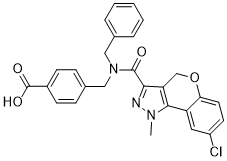This finding indicates the need for further investigation of the genetic factors associated with negative craving and the broadly defined phenotype of AbMole Metaproterenol Sulfate alcohol dependence. Moreover, future research is needed to investigate the role of PDYN variation and negative craving in alcohol withdrawal and comorbid substance induced and non-substance induced mood problems in alcoholics. Our data also indicate that more severe clinical manifestations of alcoholism, including length, number of symptoms, AbMole Clofentezine higher alcohol consumption and potentially higher frequency of DT and WS are present in alcohol-dependent subjects exhibiting negative craving. This is consistent with previous research, which demonstrated that negative craving is associated with a more severe course of alcohol dependence and may be a significant risk factor for relapse. This type of association discovered in cross sectional studies does not answer the question if negative craving is a consequence or a predisposing factor to development of a severe and complicated course of alcohol dependence. However, association of negative craving with the PDYN rs2281285 variant discovered in our previous study and replicated here favors the possibility that genetic factors acting alone or in combination with environmental factors may predispose to negative craving and a more severe course of alcoholism. Prospective studies investigating the sequential relationships between negative craving and phenotypes reflecting severity of alcoholism are necessary to further clarify this possibility. This direction of research, allowing characterization of genetic variants defining subgroups of alcohol-dependent individuals, in this case with and without negative craving, may facilitate future tailored pharmacological and psychotherapeutic treatment strategies for these individuals. As with  other alcohol-use-related phenotypes, it is expected that many more than one genetic variant may contribute to this phenotypic presentation. Therefore, further search for genetic variations associated with negative craving is necessary. It is reasonable to focus this search on sequence variation in genes encoding proteins involved in DYN/ KOR neurotransmission as well as relevant regulatory regions, which may be located in other parts of the genome. It is also important to uncover the functional mechanisms underlying the described association between negative craving and the PDYN rs2281285 variant. This SNP has been described as a tag SNP for a haplotype block within the PDYN gene. Yet, it is located in an area that may be involved in the regulation of transcription initiation from multiple sites, giving rise to one of the PDYN transcripts.
other alcohol-use-related phenotypes, it is expected that many more than one genetic variant may contribute to this phenotypic presentation. Therefore, further search for genetic variations associated with negative craving is necessary. It is reasonable to focus this search on sequence variation in genes encoding proteins involved in DYN/ KOR neurotransmission as well as relevant regulatory regions, which may be located in other parts of the genome. It is also important to uncover the functional mechanisms underlying the described association between negative craving and the PDYN rs2281285 variant. This SNP has been described as a tag SNP for a haplotype block within the PDYN gene. Yet, it is located in an area that may be involved in the regulation of transcription initiation from multiple sites, giving rise to one of the PDYN transcripts.